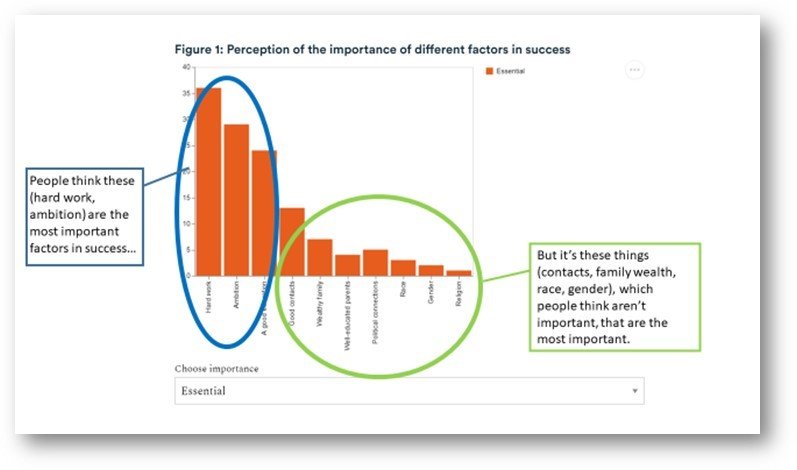This week I got distracted by the slow motion car crash that is politics in Westminster. Rubbernecking at the events in London made me stop and think: “Is this the best leadership we can get?”.
In theory it is. We’re told we live in a meritocracy. And a ‘meritocracy’ is system where the cream is supposed to rise to the top. In theory it’s a system where everyone gets what they deserve: if you’re talented and you work hard you will succeed; and if you don’t succeed, it’s because you didn’t work hard enough.
But do we live in a meritocracy? If you’ve ever played Monopoly you’ve probably noticed that the winner is decided by who gets the luckiest throws of the dice (particularly early in the game). What you might not know is that Monopoly was originally called ‘The Landlord’s Game’. And it was designed to show that the system isn’t fair. Those that get access to wealth are in a position of power and privilege, and everyone else is scrabbling for scraps.
Meritocracy is similar. While the concept goes back to the ancient Greeks, the word wasn’t coined until the 1950s. It was used in a book called ‘The Rise of Meritocracy’ to describe a potential society where success and social standing were determined entirely by intelligence and effort, which the author thought would create a highly competitive but very unequal society. But ‘meritocracy’ soon began to be used more widely, and is now used to describe the sort of society we live in. A society which we’re told is fair, where people get what they deserve, based on their efforts and abilities.
The problem, whether you believe that the theoretical description of a meritocracy sounds good or not, is that we don’t actually live in a meritocracy. People think that the most important factors for success are hard work and ambition. But research suggests that the position you’re born into (plus your gender, race and ethnicity) account for 80% of your earnings. Of course working hard will help. But it’s not anywhere near enough for most people.

I could give you lots of facts and figures that show how unfair and how little like a meritocracy it is (you’ll find some here).
Or you could just observe (as Scottish writer Darren McGarvey did in the 2022 BBC Radio 4 Reith Lectures): “if we live in a meritocracy, and all the best people are in all the top jobs, then why is the country such an unmitigated bin fire?”
Does this matter? Yes. Because describing our country as a meritocracy, when it isn’t, is dangerous. It allows us to blame people for the situation they are in.
It makes it easy to say: “If you don’t have a job, it’s because you’re lazy”. Or “If you don’t have a good enough job, it’s because you haven’t tried hard enough, or because you’re not clever enough.”
It allows people who are successful to think that their success is entirely of their own making, to overlook the role that privilege has, to overlook the role that luck had, and to overlook the role that everyone else’s efforts had (to create the system that they succeeded in).
So what do we do? For me it’s back to thinking about how we interact with others, to think rather than assume, to show empathy and kindness.
Here at Coastline we are rolling out an Insights training programme for all our colleagues that demonstrates how everyone is different and that we can choose to communicate with people in different ways to get the best results.
For those that watched ‘Blue Lights’ on BBC, don’t rush in with judgements about people - in the words of PC Gerry Cliff: “Take a beat”.
Allister Young, CEO at Coastline Housing
